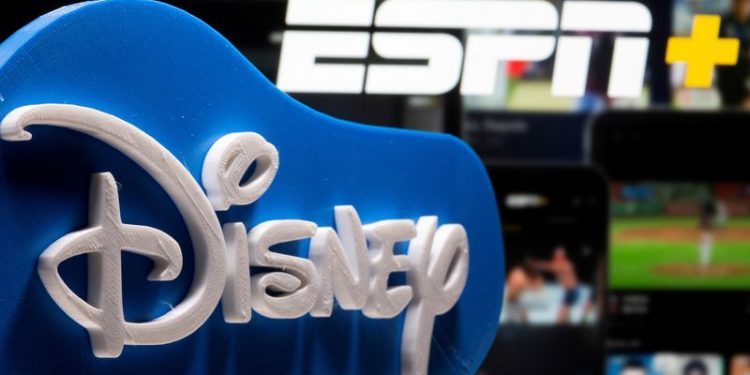By Dawn Chmielewski
(Reuters) -Walt Disney and DirecTV announced they have reached an agreement in principle on Saturday, restoring college football and other programming to the satellite TV provider’s more than 11 million subscribers.
The deal affords satellite TV subscribers greater choice and flexibility, the companies said in a joint statement. DirecTV customers had lost access to ABC, ESPN and other Disney-owned networks on Sept. 1, after the two sides reached an impasse in renewal talks.
DirecTV will be able to offer multiple genre-specific programming packages, including those focused on sports, entertainment, kids and family programming. The satellite TV provider sought to change its offerings to better address consumer tastes in the streaming TV era.
Disney’s streaming services, Disney+, Hulu and ESPN+, will also be included in certain DirecTV’s packages. The satellite TV provider also has the rights to distribute the streaming version of its flagship ESPN network, when it launches.
The entertainment giant gained improved economic terms under the new agreement, according to two sources familiar with the deal.
“DirecTV and Disney have a long-standing history of connecting consumers to the best entertainment, and this agreement furthers that commitment by recognizing both the tremendous value of Disney’s content and the evolving preferences of DIRECTV’s customers,” the companies said in a statement.
The dispute resulted in DirecTV subscribers losing access to coveted programming, including ESPN’s carriage of college football games and the U.S. Open tennis tournament. DirecTV subscribers also were unable to watch the ABC News-hosted U.S. presidential debate between Vice President Kamala Harris and Republican candidate Donald Trump on the ABC broadcast network.
Vince Torres, DirecTV’s chief marketing officer, said the programming blackout was costing the satellite TV service subscribers, in remarks Thursday at the Goldman Sachs Communacopia + Technology Conference in San Francisco.
Disney and DirecTV came to an agreement ahead of Sunday’s broadcast of the Emmy Awards on ABC, in which the media giant appears poised for historic gains, on the strength of three of the most-nominated series of the year, “Shogun,” “The Bear” and “Only Murders in the Building.”
Distributors like DirecTV and programmers such as Disney have bickered for decades over rates as the cost of television packages have soared.
What has helped prop up the TV industry is the decades-old practice of “bundling,” or requiring pay TV distributors to pay for and carry less-viewed networks, such as Freeform, to gain access to the prized programming of ESPN. Contractual terms also specify how broadly a distributor makes this content available to its subscribers.
Sports have historically provided a bulwark against the decline of the pay TV industry, continuing to attract viewers even as cable and satellite TV distributors shed subscribers.
But as viewers migrate to streaming, sports has followed. Marquee events, such as the just-ended Olympics, have moved to streaming, along with professional sporting contests from the National Football League and the National Basketball Association.
Venu Sports, a planned sports streaming service that brings together programming from joint-venture partners Disney, Warner Bros Discovery (NASDAQ:WBD) and Fox, threatens to further accelerate the decline of pay TV. Venu’s launch has been delayed, pending the outcome of an antitrust trial.
DirecTV has said it wants the opportunity to offer its subscribers genre-based programming packages, tailored to their viewing tastes, in the mold of Venu, without forcing customers to pay for a fat bundle of TV channels they don’t watch.
“That’s a genre offering that we believe is good for consumers, that we want to offer consumers,” said Torres.





